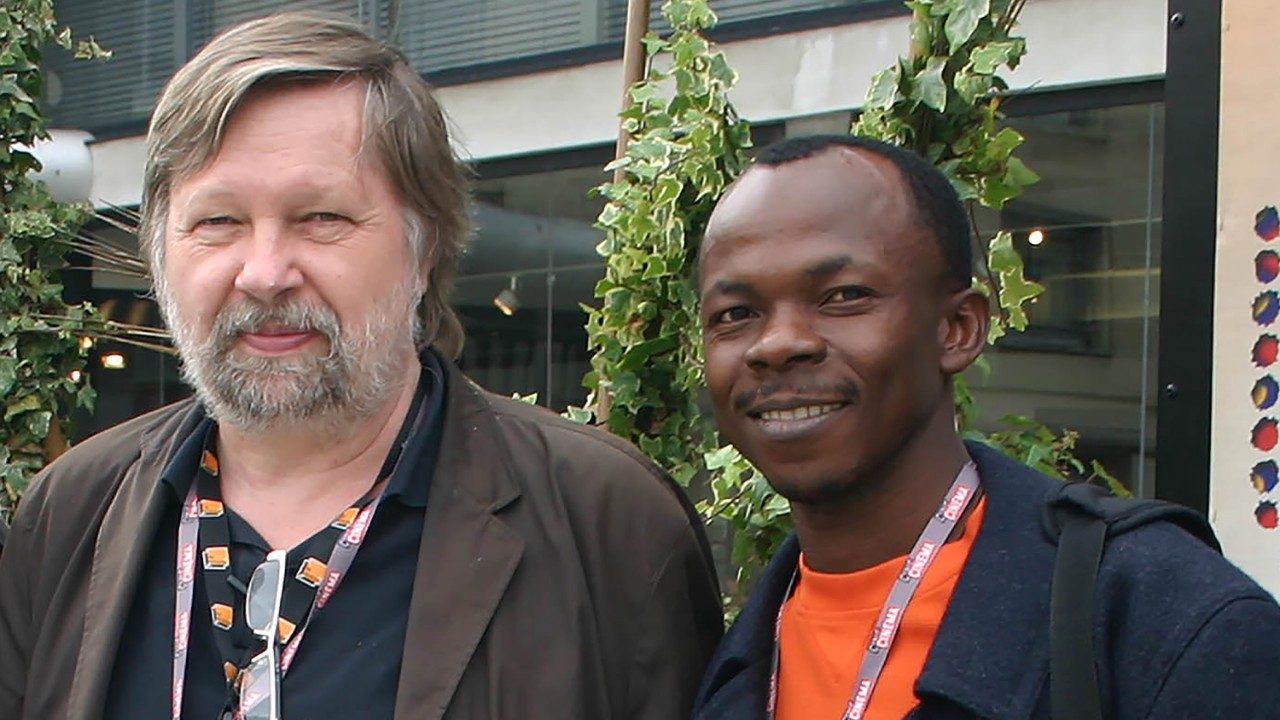Guido Convents, a Belgian national who recently passed away, was a dedicated and pioneering scholar, film critic, historian, and anthropologist. Charles Ayetan, a Togolese media practitioner, film critic, and expert on African cinema, was a friend and colleague of Guido. He says that Guido Convents’ impact on African cinema is a legacy worth celebrating.
Paul Samasumo – Vatican City.
For most of his working life Guido Convents was employed by SIGNIS and was based at its secretariat in Brussels. SIGNIS is the World Catholic Associationfor Communication.
Charles Ayetan, currently serving as the Communications Officer of SECAM (the Symposium of Episcopal Conferences of Africa and Madagascar) based in Accra, Ghana, is also President of the African Catholic Union of the Press (UCAP) and a member of the African Federation of Film Critics (AFFC/FACC).
Recently Charles Ayetab shared lasting impressions about the life and work of Guido Convents’ life -from an African perspective.
Guido Convents’ contribution to African Cinema
I first met Guido Convents in person at the FESPACO Interantional film festival in Ouagadougou and that same year agian in France during the Amiens International Film Festival in 2009. However, before that unforgettable meeting, Guido and I had exchanged articles and news stories about African cinema and African-related news. At the time, I was working with the Togolese church newspaper, Présence Chrétienne.
To me, Guido was like a brother, and in matters of cinema, he was a guiding figure. Despite being a young media practitioner and film critic, he demonstrated much confidence in my abilities.
A tireless promoter of African images
Guido was a tireless advocate for African images, especially African cinema. For decades, he dedicated his life to researching and extensively publishing on the history of African cinema and also ensuuring visibility for African filmmakers. In all, he published about six or seven books on African film. One of his notable books, published in 1986 in French, is, À la recherche des images oubliées: Préhistoire du cinéma en Afrique (1897-1918). Another of Guido’s works is, Images et animation. Le cinéma d’animation en Afrique centrale. Introduction au cinéma d’animation en République démocratique du Congo, au Rwanda et au Burundi (2014).
Along with Guido Huysmans and others, Guido founded and regularly organised the Afrika Filmfestival in Leuven, which served as an important platform for promoting African films, celebrating African cultures, and combating stereotypes about Africa and its people. In his own unique way, Guido was also committed to strengthening the presence of the Catholic Church in international film festivals and supporting the recognition of filmmakers through Ecumenical and SIGNIS Awards.
Is African Cinema growing?
Yes, African cinema is experiencing growth. Across the continent, more films are being produced each year in Nigeria, South Africa, Kenya, Senegal, Burkina Faso, Togo, Ghana, and many other countries.
Online streaming platforms and international film festivals are providing African films with wider visibility and creating new markets.
This growth is primarily driven by Africa’s young population, increasing demand for local stories, digital technologies that reduce production costs, a growing sense of national and cultural pride. While challenges such as limited funding, piracy, and distribution gaps persist, the overall trend indicates expansion. African cinema is growing both in quantity and quality, carving out a vibrant presence on the global stage.
For example, Nigeria’s Nollywood releases more than 2,000 films annually, making it the second-largest film industry in the world by production volume, second only to India’s Bollywood. Africa’s films are quickly sold and consumed by audiences across Africa, the diaspora, and beyond. Despite challenges, strong storytelling and innovative business models can generate substantial income. African cinema is definitely rising.
Advice to young African film makers
African cinema plays a vital role in telling our stories, preserving our memories, and shaping how the world perceives African peoples. I advise young filmmakers to stay rooted in their identity: tell authentic African stories that reflect your culture, history, and realities.
As Guido Convents often said, Cinema is not just entertainment – it can also be a tool for education, cultural identity, and transformation. Similarly, the Senegalese filmmaker Ousmane Sembene believed that film is an ‘evening school.’ Sembene argued that film should be both entertaining and instructive, provoking critical thought and serving as a vehicle for social and political commentary that fosters social development.
The world is eager to hear your unique narratives. Africa is rich in original stories that only African filmmakers can tell, so be very creative.
How should we remember Guido Convents?
To honour Guido Convents’ legacy, African film festivals and cinema promoters could establish awards in his name. Alternatively, organising events, conferences, or workshops to reflect on his significant contributions would be a fitting tribute to this defender of African cinema.
